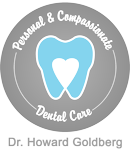Full Fixed Prosthetics Implant
Losing one or more teeth can be devastating to one’s self-confidence and ability to talk or chew. Tooth decay, gum disease, and physical traumas are just a few of the reasons patients require tooth replacement. In the past, the only options were removable prosthetics or fixed devices bonded to other abutment teeth. But now, dental implants are making it possible to provide patients with a fixed prosthetic without the support of surrounding teeth. With a full fixed prosthetic implant, patients enjoy permanence, strength and an aesthetic appearance that closely mimics the features of natural and healthy teeth.
Did you know…that many people in the U.S. are edentulous, that is, they have no teeth? Approximately 1 in 4 adults over age 60 has no teeth in the upper or lower jaw. Rather than rely on removable prosthetics, millions have turned to fixed implants as a tooth replacement option. Like natural teeth, fixed implants are permanently anchored in the mouth, lasting several decades when properly cared for. |
Frequently Asked Questions
Am I a candidate for a full fixed prosthetic implant?
You may be a candidate for a full fixed prosthetic implant if you have no teeth on your upper arch, lower arch, or both arches. Full fixed prosthetic implants are available to patients with sufficient jaw bone to support an implant, which is placed into the jaw as a prosthetic tooth root. To find out if full fixed prosthetic implants are right for you, contact our office to schedule a consultation.
What should I expect when being fitted for a full fixed prosthetic implant?
Dental implants consist of two parts: the implant and the prosthetic teeth. The implant is a titanium rod placed inside the jaw, where it fuses with surrounding bone. Once it has healed – a process that can take several months – a patient is fitted for a permanent tooth replacement. For patients with only one or a few missing teeth, a single dental implant and corresponding crown may be used for each individual tooth replacement. But patients replacing a full arch may have a single full fixed prosthetic anchored to only a few dental implants around the upper or lower jaw.
How should I care for my new implants? Will I have any restrictions?
You may have some dietary restrictions in the weeks immediately following your implant surgery. In most cases, patients can resume normal eating habits once fitted for a permanent fixed prosthetic. Though most people get a lifetime of wear out of their dental implants, we strongly recommend that patients avoid smoking and tobacco use, which can significantly affect the permanence of dental implants.












